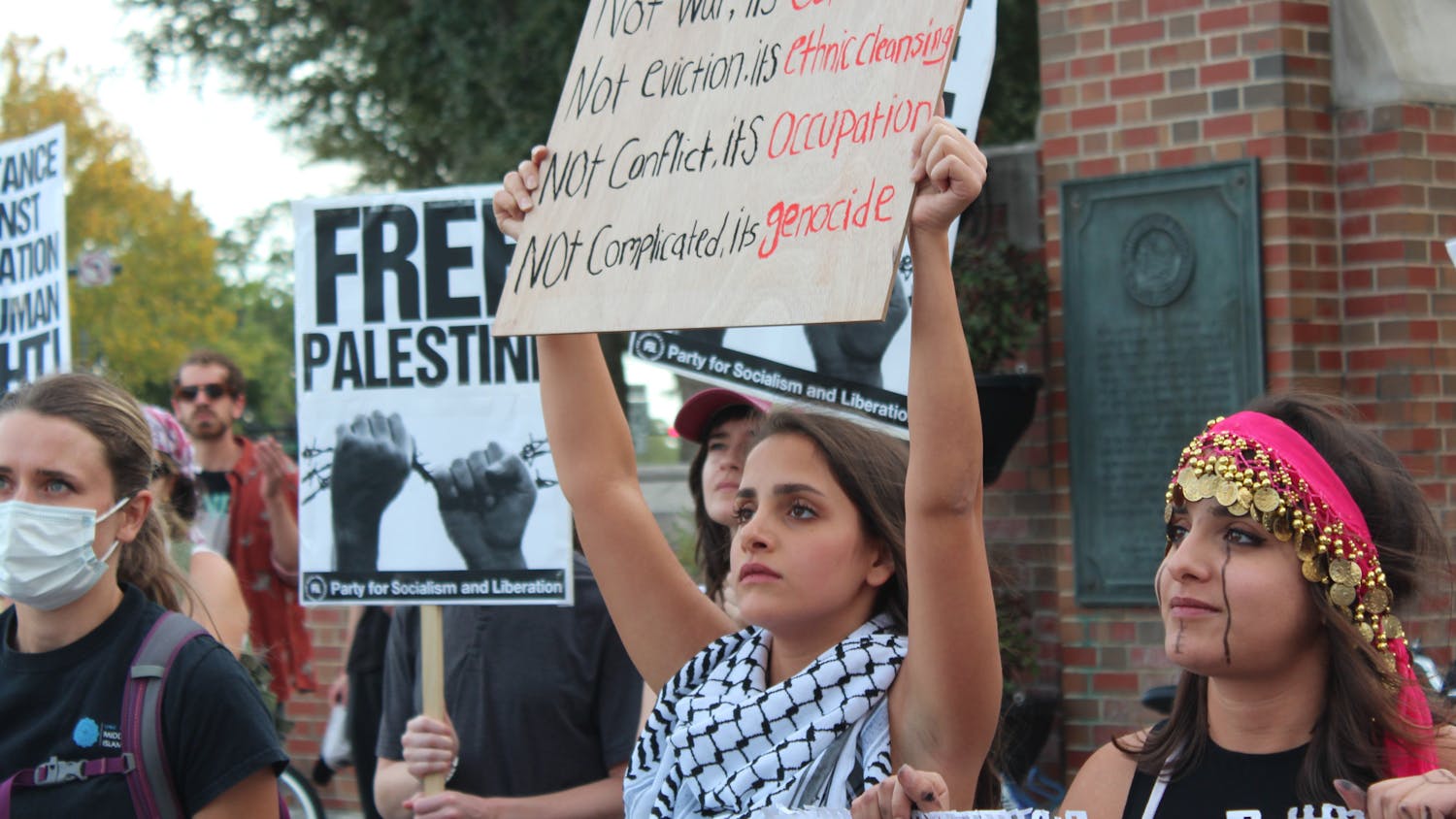As the school year begins, UF students are preparing for the upcoming football season, the Greek fraternities and sororities are gearing up for Recruitment Week, and eager freshmen are stumbling through campus adorned with their Preview lanyards.
In the midst of all this hectic activity, it’s easy to forget the continuing state of unrest in Ferguson, Missouri, where an 18-year-old unarmed teenager named Michael Brown was shot and killed by a police officer.
According to several eyewitnesses, Officer Darren Wilson shot Brown, who had his hands up in surrender before falling to the ground into a pool of his own blood. In response to Brown’s death, angry Ferguson residents took to the streets in protest.
After leaving Michael Brown’s body on the street for four hours, officers carried him out in a police SUV, equating his body to that of road kill. A lengthy police report was soon released claiming that Brown was a suspect in a convenience store robbery even though Wilson did not know whether Brown was a suspect.
Through its investigation, the St. Louis County Police Department has since been closed off and silent about its ongoing investigation amid calls for an arrest or an autopsy report.
In the aftermath of Brown’s death, the news media and the Ferguson Police Department have been actively trying to derail discussion about the true injustice at hand: A black unarmed teenager was shot and killed by a white police officer for no justifiable reason. Instead, the focus has largely been on Brown’s alleged act of robbery before his death and reports that Brown may have used marijuana in the past.
Even if either of these accusations are true, they in no way justify the action Wilson took in shooting Brown.
Another issue underreported by the mainstream media is the growing problem of police brutality in America. Police responded to the Ferguson protesters with a series of gross overreactions, using rubber bullets and tear gas on peaceful protesters after riding in on armored tanks armed with semi-automatic rifles. Police clearly used these threats as an intimidation tactic to cause unnecessary escalation.
The reaction of the police was so severe and brutal that even citizens of Gaza extended their sympathies and support to Ferguson residents.
The news media have failed in their coverage of Ferguson in other ways. They rarely reported about people passing out free food to protesters, people passing out milk to relieve tear gas victims, the voter registration drives that popped up, the protesters stopping looters and rioters in their tracks, or Michael Brown’s memorial, where 1,000 roses were laid on the very street he was killed on. The memorial has since been trampled on by a police car and urinated on by police dogs.
It is important to note that this flare-up in racial tension is a part of a larger nationwide crisis in which black lives are devalued and ignored.The rage and anger felt by residents of Ferguson is completely understandable because the murders of unarmed black people are stories that are all too common.
As a black person, society sees your skin color as a weapon regardless of your socio-economic status, education or national origin.
Brown was a man with a future. He was days away from attending trade school to become an A/C and heater technician. Regardless of any previous misconduct, he did not deserve to have his life taken away. His memory must be honored, and the wider social problems his death represents must be acknowledged.
Harold Joseph is a political science junior. His columns usually appear on Fridays.
[A version of this story ran on page 7 on 9/2/2014 under the headline "Media fall short with Ferguson, police brutality coverage"]




